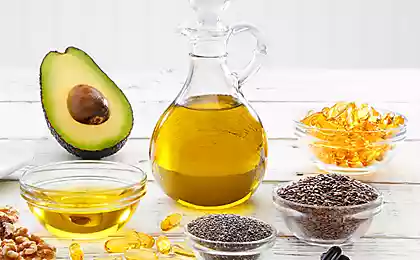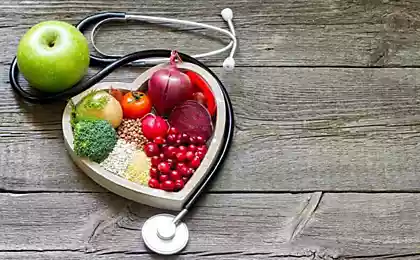880
Eat fat, lose weight!
It's just not fair: decades ago, fats have received a bad reputation only because the scientists, based on incorrect conclusions of a pair of big research, I decided that eating foods containing fat, is a direct route to excess weight and cardiovascular diseases. Fatty foods made the only cause of all problems: increasing levels of cholesterol, clogged blood vessels and obesity.
It seemed that the conclusions are correct. It's true, why would the fat that we consume is not to be deposited on the buttocks and thighs? "But a diet low in fat does not work, said Dr. Frank Hu, Professor of nutrition and epidemiology, Harvard school of public health. — The obesity epidemic in America continues to gain momentum, even when we reduce the consumption of fat." So, experts are moving away from the widespread perception that "fat is evil". We also ought to reconsider.
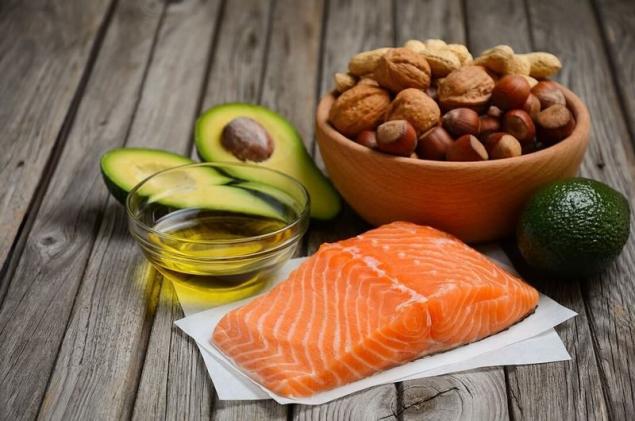
Fats. The reverse of the medal
Together with carbohydrates and proteins, fats are important nutrients. This means that they need our body to execute various functions, for example, for absorption of fat-soluble vitamins A, D, E and K. "Fat is also an important source of energy and essential for maintaining the health and beauty of skin and hair," says Bonnie Taub-Dix, author of "Read it before you eat."
That's what is even more surprising: the study shows that the use of "right fats" actually reduces the risk of diabetes, heart disease and obesity and helps normalize cholesterol levels. "This is because not all fats are the same," notes Professor F. Hu.
According to meticulous research in recent years on your weight or whether your risk of developing heart disease, does not affect the amount of fat in the diet. The value is the types of fats you choose (and, when it comes to losing weight, the total number of calories consumed). That's where the Shoe pinches.
Good fats
Contained in plant foods such as nuts, avocados, olive oil and canola oil and chicken.
MUFAS can reduce the levels of cholesterol and thus the risk of developing heart disease. In the journal of research of the American medical Association stated that the replacement of a diet high in carbohydrates on a diet with a high content of monounsaturated fatty acids contributes to both of them, plus helps to reduce high blood pressure.
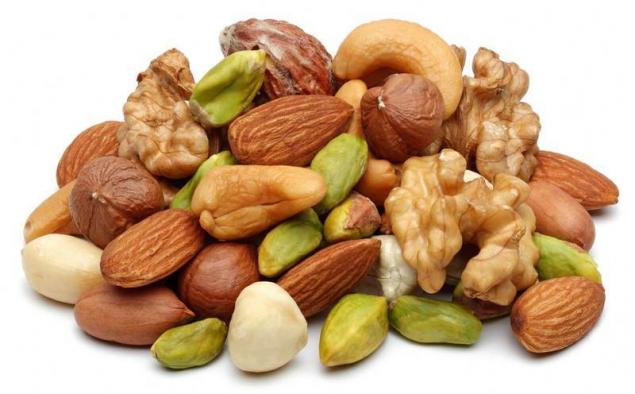
Contained in oily fish, like salmon and mackerel, and also in corn and soybean oil.
It has been proven that as MUFAS, Pufas help to normalize the levels of cholesterol and reduce the risk of developing cardiovascular disease. One such fatty acid is an omega — 3, in large quantities contained in certain fish (not to be confused with the fatty acid omega-6, found in meat, corn and soybean oil), high amounts of omega-3 contained in flax and olive oil.
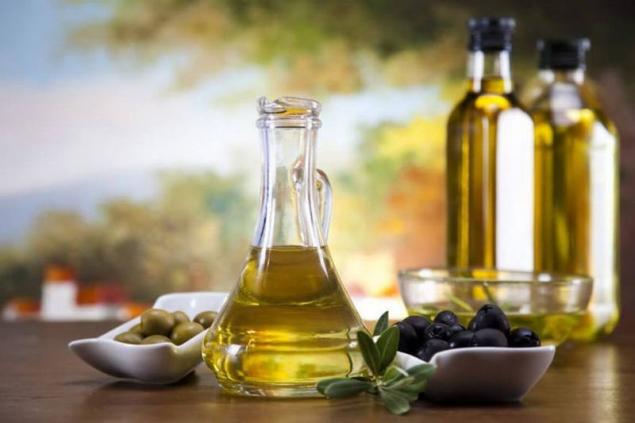
In some studies it was found that Americans eat about 20 times more omega-6 than omega-3. And ideally, the proportion should be one to four. "To achieve this, we need to replace meat with fish and other foods high in omega-3," recommends Professor F. Hu.
Fat, the use of which is to restrict
Contained in meat and dairy products such as cheese, butter and milk.
For decades we were told that you need to eat less saturated fats because they raise levels of "bad" (LDL) cholesterol and, consequently, the risk of heart attack and stroke. But lately, in the research it was questioned.
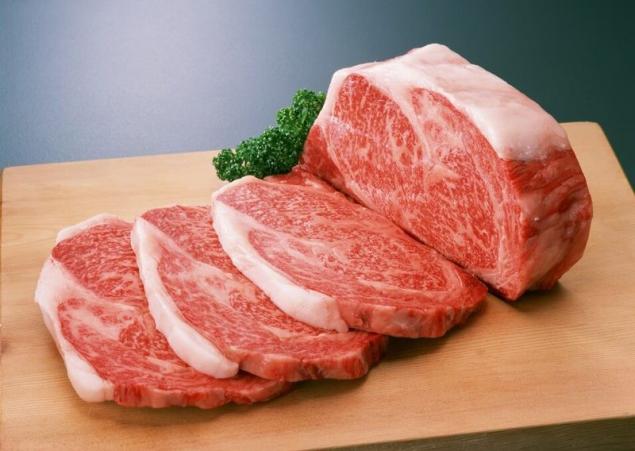
For example, in a review of 21 studies conducted by the American journal of clinical nutrition, it was not possible to establish a link between saturated fat consumption and heart disease or stroke. Some types of fats have even been justified. "Stearic acid found in dark chocolate, absolutely harmless, said Dr. David L. Katz, Director of the Research center for disease prevention at Yale University. — Harmless may be lauric acid — the kind of saturated fat, which is a lot of coconut oil. But for this statement there is not yet much evidence."
While some experts, like Dr. Katz, I believe that there is no need to limit consumption of saturated fat, other experts believe that the need to use them sparingly and it will help to avoid eating too many unhealthy refined carbohydrates.
Here is the output: they do Not need to completely eliminate. Just make sure most fats you eat is unsaturated fats and replace butter with oil.
Bad fats
Found in some fried foods, senecah with the addition of shortening (fat added in dough for friability), for example, crackers and pastries.
About TRANS fats started talking a few years ago, when in one of the States and some cities have banned the use of artificial in restaurants (this is contained in partially hydrogenated vegetable oils; in miniscule amounts may be naturally present in some foods).
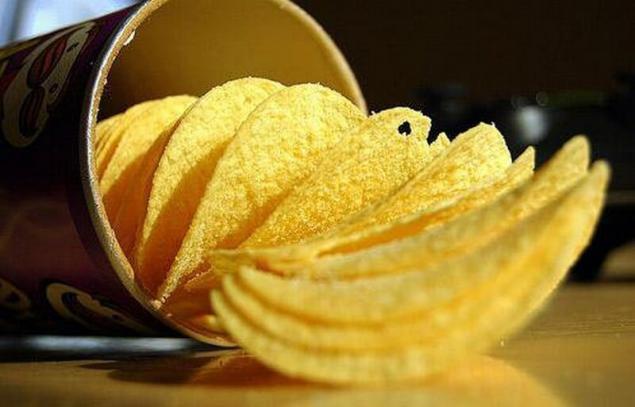
In the study it was found that TRANS fats increase levels of bad cholesterol and reduce good cholesterol (HDL), and this may contribute to the increased risk of heart attack and stroke. Still, partially hydrogenated fats remain common ingredient industrial products, and all because the enrichment of vegetable oils with hydrogen (hydrogenation) allows to extend shelf life.
The experts are unanimous in the opinion that it is necessary to reduce the consumption of TRANS fats. And, fortunately, it is not difficult to do. "Limit consumption of industrial products, snacks and fast food, and then you will avoid the TRANS fat," said Dr. Katz.
Do not think that don't get TRANS fats if on the packaging says "no TRANS fats". "Food manufacturers are allowed to put the icon "no TRANS fat" if the product contains up to 0.5 g. TRANS-fats per serving, says Bonnie Taub-Dix. — Look at the ingredients list: if you see the word "hydrogenated", it means the product contains TRANS fats and therefore better to give him".
Eat fat, lose weight
We know what you're thinking. "How to control calories, if you eat chocolate, olive oil and nuts?" In the end, fats give you 9 calories per gram vs 4 calories derived from protein and carbohydrates. First, in the use of food containing fat, you saturated faster than if eating fat-free food. This means that you will eat less and later will not have the desire to eat something.
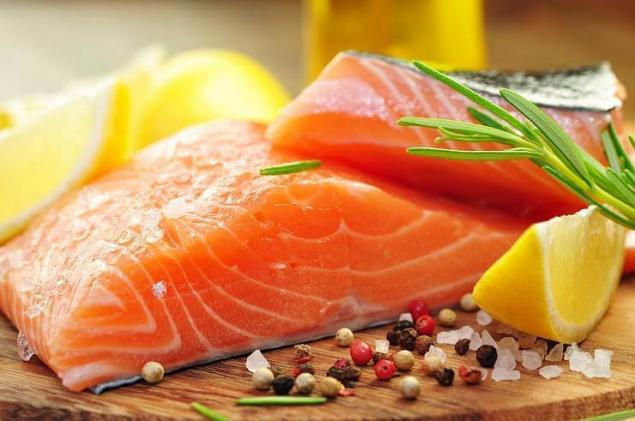
In some studies it is also noted that certain fats help to stay slim. For example, Harvard researchers found that people who regularly eat nuts, for 4 years gained less weight than those who don't drink. In addition, the products marked with the label "reduced fat" or "low fat" can contain more calories than the same products with fat, since fat is replaced with sugar, starch and other fillers with little or almost no nutritional value.
As for cheese, Professor F. Hu recommends from time to time to enable fat cheese. This cheese has more flavor and because a small amount can be well enough (there are studies showing that dairy does not promote bone health, and even hurting them).
Also interesting: the Spice that makes us younger
No sugar diet: a personal experience
So, how much "good" fat you need to eat? The American heart Association recommends the consumption of unsaturated fats in the volume of 18-28% of the number of calories. Not more than 7% of calories should come from saturated fat. Here's one simple rule: "I'm just trying to make the fats that I eat come from healthy foods such as vegetable oils, fish, legumes, nuts and other plant foods, says Professor F. Hu. — If you do the same, then there is not any need to count".published
Author: Kate Lowenstein
Source: macrobiotica.ru/articles/ration/356/
It seemed that the conclusions are correct. It's true, why would the fat that we consume is not to be deposited on the buttocks and thighs? "But a diet low in fat does not work, said Dr. Frank Hu, Professor of nutrition and epidemiology, Harvard school of public health. — The obesity epidemic in America continues to gain momentum, even when we reduce the consumption of fat." So, experts are moving away from the widespread perception that "fat is evil". We also ought to reconsider.

Fats. The reverse of the medal
Together with carbohydrates and proteins, fats are important nutrients. This means that they need our body to execute various functions, for example, for absorption of fat-soluble vitamins A, D, E and K. "Fat is also an important source of energy and essential for maintaining the health and beauty of skin and hair," says Bonnie Taub-Dix, author of "Read it before you eat."
That's what is even more surprising: the study shows that the use of "right fats" actually reduces the risk of diabetes, heart disease and obesity and helps normalize cholesterol levels. "This is because not all fats are the same," notes Professor F. Hu.
According to meticulous research in recent years on your weight or whether your risk of developing heart disease, does not affect the amount of fat in the diet. The value is the types of fats you choose (and, when it comes to losing weight, the total number of calories consumed). That's where the Shoe pinches.
Good fats
- Monounsaturated fatty acids (MUFAS).
Contained in plant foods such as nuts, avocados, olive oil and canola oil and chicken.
MUFAS can reduce the levels of cholesterol and thus the risk of developing heart disease. In the journal of research of the American medical Association stated that the replacement of a diet high in carbohydrates on a diet with a high content of monounsaturated fatty acids contributes to both of them, plus helps to reduce high blood pressure.

- Polyunsaturated fatty acids (Pufas).
Contained in oily fish, like salmon and mackerel, and also in corn and soybean oil.
It has been proven that as MUFAS, Pufas help to normalize the levels of cholesterol and reduce the risk of developing cardiovascular disease. One such fatty acid is an omega — 3, in large quantities contained in certain fish (not to be confused with the fatty acid omega-6, found in meat, corn and soybean oil), high amounts of omega-3 contained in flax and olive oil.

In some studies it was found that Americans eat about 20 times more omega-6 than omega-3. And ideally, the proportion should be one to four. "To achieve this, we need to replace meat with fish and other foods high in omega-3," recommends Professor F. Hu.
Fat, the use of which is to restrict
- Saturated fats.
Contained in meat and dairy products such as cheese, butter and milk.
For decades we were told that you need to eat less saturated fats because they raise levels of "bad" (LDL) cholesterol and, consequently, the risk of heart attack and stroke. But lately, in the research it was questioned.

For example, in a review of 21 studies conducted by the American journal of clinical nutrition, it was not possible to establish a link between saturated fat consumption and heart disease or stroke. Some types of fats have even been justified. "Stearic acid found in dark chocolate, absolutely harmless, said Dr. David L. Katz, Director of the Research center for disease prevention at Yale University. — Harmless may be lauric acid — the kind of saturated fat, which is a lot of coconut oil. But for this statement there is not yet much evidence."
While some experts, like Dr. Katz, I believe that there is no need to limit consumption of saturated fat, other experts believe that the need to use them sparingly and it will help to avoid eating too many unhealthy refined carbohydrates.
Here is the output: they do Not need to completely eliminate. Just make sure most fats you eat is unsaturated fats and replace butter with oil.
Bad fats
- TRANS fats
Found in some fried foods, senecah with the addition of shortening (fat added in dough for friability), for example, crackers and pastries.
About TRANS fats started talking a few years ago, when in one of the States and some cities have banned the use of artificial in restaurants (this is contained in partially hydrogenated vegetable oils; in miniscule amounts may be naturally present in some foods).

In the study it was found that TRANS fats increase levels of bad cholesterol and reduce good cholesterol (HDL), and this may contribute to the increased risk of heart attack and stroke. Still, partially hydrogenated fats remain common ingredient industrial products, and all because the enrichment of vegetable oils with hydrogen (hydrogenation) allows to extend shelf life.
The experts are unanimous in the opinion that it is necessary to reduce the consumption of TRANS fats. And, fortunately, it is not difficult to do. "Limit consumption of industrial products, snacks and fast food, and then you will avoid the TRANS fat," said Dr. Katz.
Do not think that don't get TRANS fats if on the packaging says "no TRANS fats". "Food manufacturers are allowed to put the icon "no TRANS fat" if the product contains up to 0.5 g. TRANS-fats per serving, says Bonnie Taub-Dix. — Look at the ingredients list: if you see the word "hydrogenated", it means the product contains TRANS fats and therefore better to give him".
Eat fat, lose weight
We know what you're thinking. "How to control calories, if you eat chocolate, olive oil and nuts?" In the end, fats give you 9 calories per gram vs 4 calories derived from protein and carbohydrates. First, in the use of food containing fat, you saturated faster than if eating fat-free food. This means that you will eat less and later will not have the desire to eat something.

In some studies it is also noted that certain fats help to stay slim. For example, Harvard researchers found that people who regularly eat nuts, for 4 years gained less weight than those who don't drink. In addition, the products marked with the label "reduced fat" or "low fat" can contain more calories than the same products with fat, since fat is replaced with sugar, starch and other fillers with little or almost no nutritional value.
As for cheese, Professor F. Hu recommends from time to time to enable fat cheese. This cheese has more flavor and because a small amount can be well enough (there are studies showing that dairy does not promote bone health, and even hurting them).
Also interesting: the Spice that makes us younger
No sugar diet: a personal experience
So, how much "good" fat you need to eat? The American heart Association recommends the consumption of unsaturated fats in the volume of 18-28% of the number of calories. Not more than 7% of calories should come from saturated fat. Here's one simple rule: "I'm just trying to make the fats that I eat come from healthy foods such as vegetable oils, fish, legumes, nuts and other plant foods, says Professor F. Hu. — If you do the same, then there is not any need to count".published
Author: Kate Lowenstein
Source: macrobiotica.ru/articles/ration/356/


